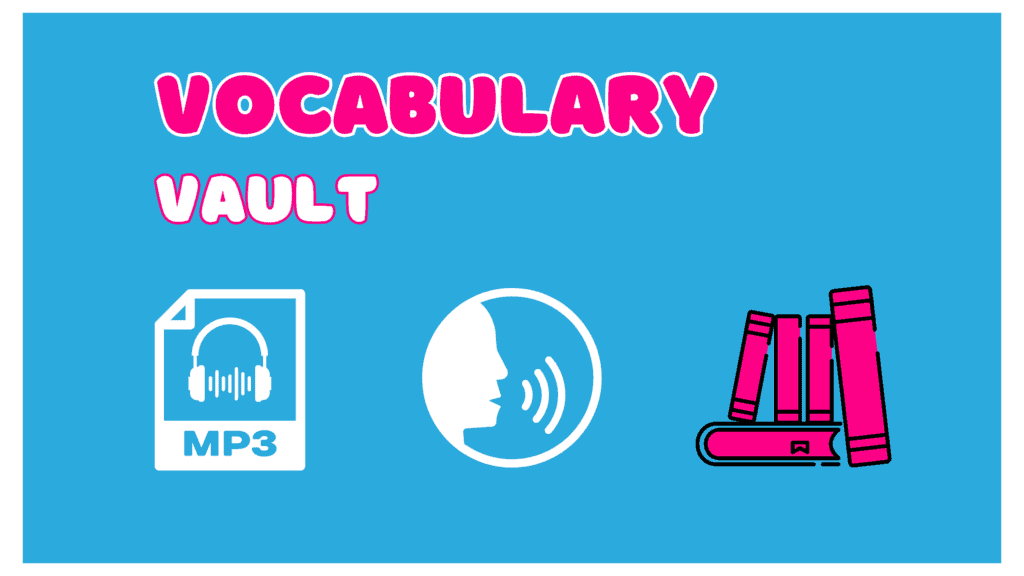IELTS Speaking Lesson about Business People
👇 Take this lesson with you! 👇
What are the different IELTS Speaking Business or Entrepreneur questions you will get in the test?
In this free IELTS Speaking lesson, you will learn lots of vocabulary, collocations and idioms to help you talk fluently and answer these questions confidently.
Table of Contents
IELTS Speaking vocabulary: Business people
Business is a very wide topic and an important one in IELTS Speaking. In this lesson we will focus on business people, in particular entrepreneurs.
Here are some useful words to talk about business people
Businessman (sing.)
Businessmen (pl.)
Business woman (sing.)
Business women (pl).
An entrepreneur (n.) = a person who sets up their own business
A solopreneur (n.) = an entrepreneur working alone
A youpreneur = an entrepreneur who uses their name as a brand
A business Tycoon (n.) = a rich and influential business person in their industry
A business magnate = a rich and influential business person in their industry
A founder = the person who created a company
A co-founder = one of 2 or more people who created a company
In a company or business there are many names for people in high level management positions, including the following.
- An executive = a person with a leadership position in a company / business or firm
- CEO = Chief Executive Officer
- COO = Chief Operating Officer
- MD = Managing Director

Describing Entrepreneurs
When we describe people, there are different ways of expressing out opinion, such as
In my opinion, ______
As far as I’m concerned,_______
The way I see it, ______
So we can make a sentence like the following, and then add different adjectives or a noun.
“In my opinion, entrepreneurs need to be passionate.”
“The way I see it, an entrepreneur needs to be a visionary”
“As far as I’m concerned, entrepreneurs need to have a vision”
Here are some common adjectives we can use to describe entrepreneurs.
- Passionate
- Persistent / determined / hard-working
- Creative / innovative
- Honest / fair / ethical
- Positive / proactive / fearless
Find more adjectives to describe entrepreneurs here.
More expressions
- To have a vision = to have a view of the world I want to make real
- To lead from the front = to set the example and lead
- A bad leader will lead from behind = not setting the example
IELTS Speaking topic: How to set up a business
Here is some key vocabulary to talk about setting up or starting a business.
To set up = to start or begin (a business, a project, a company)
To set up a start up (= a new business/company)
To found a business ( = to establish, begin)
To launch a business ( = to establish, begin)
To start a business from scratch (= to start with nothing and from the beginning)
To start a business from square one (=from the beginning)
How does someone set up a business? What are the key steps they should take?
Here are some ideas below. The order may change slightly, but this will give you some ideas, and useful collocations.
- Get a groundbreaking / outstanding idea
- Find out customer and market needs / do some market research
- Make / write a business plan / decide on a business model
- Find investment / capital / money
(e.g. network, get a loan from a bank, get an ‘angel’ investor)
- Create your brand / product and service
- Find a place / location / platform
- Hire employees / create a team
- Open shop / start working
- Do some marketing / do some advertising / sell your product or service
Different Business models
- B to B (wholesale = selling to companies)
- B to C (retail = selling directly to the customer)
- Online selling
- One-off payment
- Monthly subscription model

IELTS Speaking discussions: Which entrepreneur do you look up to and why?
Here are some answers to this question. Notice the ideas and collocations.
- Ratan Tata because he always gives back to the community.
- I look up to the online small business entrepreneurs who have seized a wonderful opportunity
- I really admire Jack Ma who is a Chinese business magnate, investor and philanthropist. He also is the co-founder of the Alibaba Group.
- I respect Bill Gates, because he is a great philanthropist and funds many scientific projects.
- I look up to Elon musk because I am interested in astronomy
- I have a lot of time for Mark Zuckerberg, because he transferred our social lives from the real world to the virtual world.
Find out about more famous entrepreneurs and what we can learn from them.
Great questions leaders should be asking employees
We often think of entrepreneurs as leading from the front, having a clear vision and just telling everybody what to do.
However, some of the best entrepreneurs are great listeners, and they have a talent for asking good questions. Somebody once said,
“If you want to get a good answer, then ask a great question.”
Many entrepreneurs pay heed to this advice. Here are some great questions that leaders could and should be asking their employees, to make their business even better.
How can I help you?
What do you think?
What have you learnt today?
How can we better serve our customers?
IELTS Speaking idioms about business people
Come up with an idea = to create (an idea)
Leaders need to come up with great ideas
To build a company from the ground up = to create a company from the beginning and make it bigger
Mark built his online business from the ground up
Get / have experience under your belt = have a lot of experience (in my life)
You are fresh out of university, you should accept that job offer, just to get some experience under your belt
To see/look at the bigger picture = to understand the big strategy (not focus on the details)
To not be able to see the wood for the trees = to focus on the details (and miss the big picture)
Some employees can’t see the wood for the trees, that’s why the leader need to see the bigger picture
To go back to the drawing board = try, fail and then begin again (company, project, product)
Well, that product didn’t sell well at all, we need to go back to the drawing board.

Pronunciation Files For Vocabulary From My Best Live Lessons
Use Words EASILY in English Conversations!
More IELTS Speaking Free Lessons
If you liked this lesson, leave a comment below!
There are more lessons you can follow in the links below too.
STUDYING in IELTS Speaking. Learn the essential vocabulary for this topic, as well as how to talk about studying techniques.
TECHNOLOGY in IELTS Speaking. How to talk about technology, the internet and artificial intelligence.
NATION AND CULTURE in IELTS Speaking. Learn the essential vocabulary for this topic, as well as how to talk about the connection between nation and identity.



Great insights on the IELTS Speaking lesson about business topics! It’s essential for candidates to understand how to frame their answers effectively when discussing professions and industries. I particularly liked the focus on vocabulary and fluency tips.
Dear Keith O’Hare
I am glad to come across your YouTube channel and website that are full of a variety of stuff. I have gotten benefits. I have been prepared for TOEFL for a while. Would you like to suggest a tutor experienced about TOEFL.
Best regards
Pleased my videos are helping. I am afraid I don’t know any TOEFL tutors to recommend you, but you can find lots on italki.com
Sir I am not able to access or download the PDF I’m having this issue since one month or there is something wrong with the site help me out out
The downloads all seem to be working. I suggest you try using a different browser to download, or even a different device, and see if that helps.